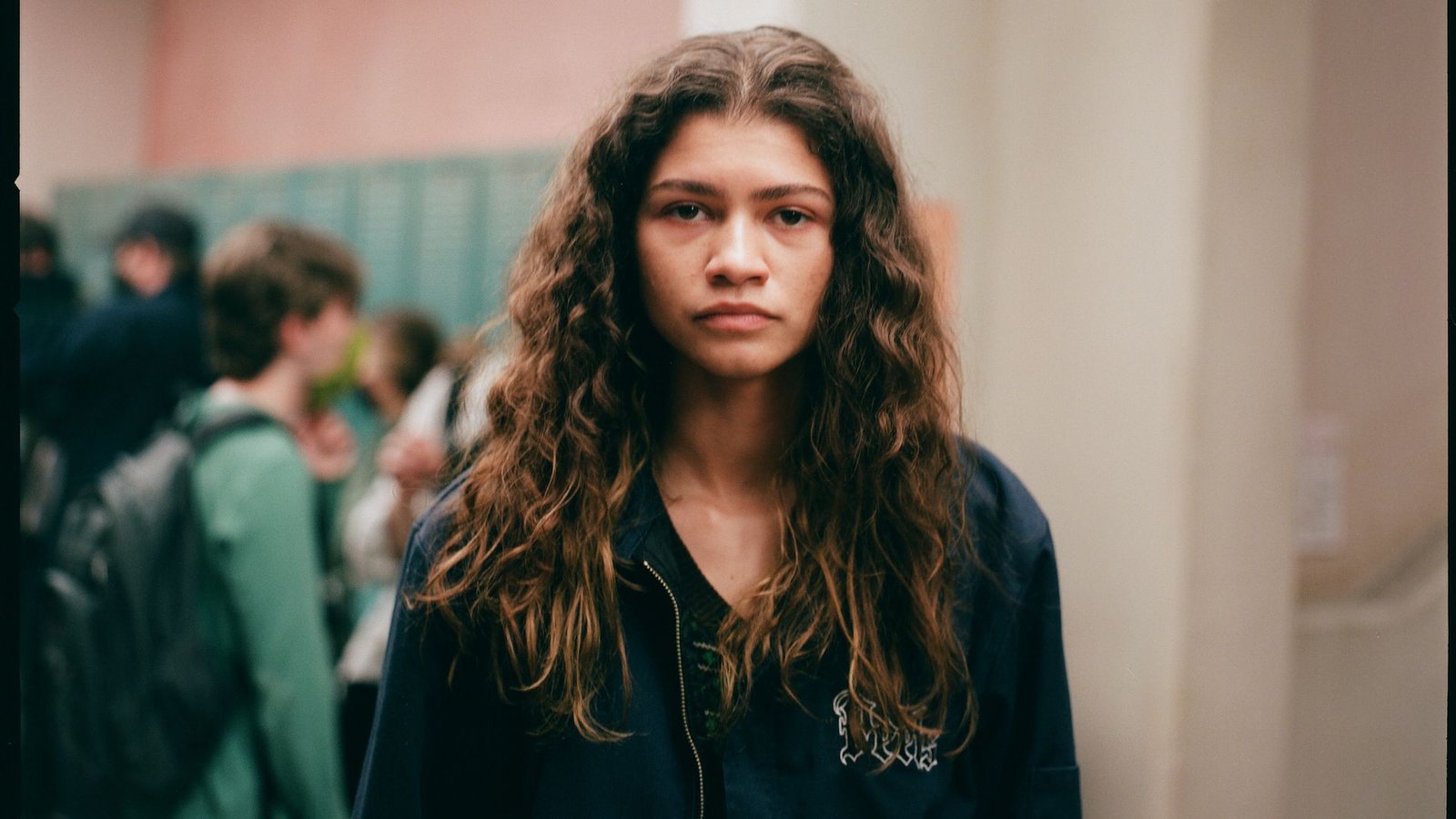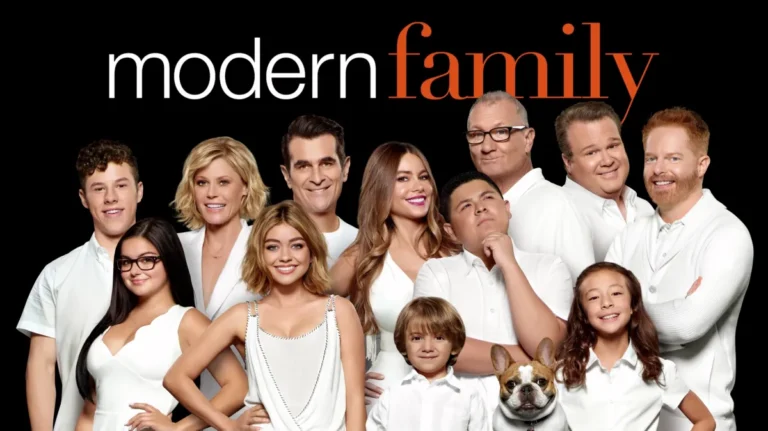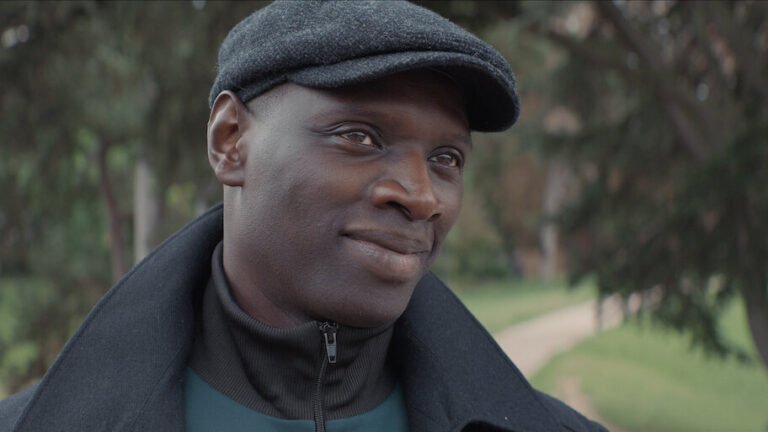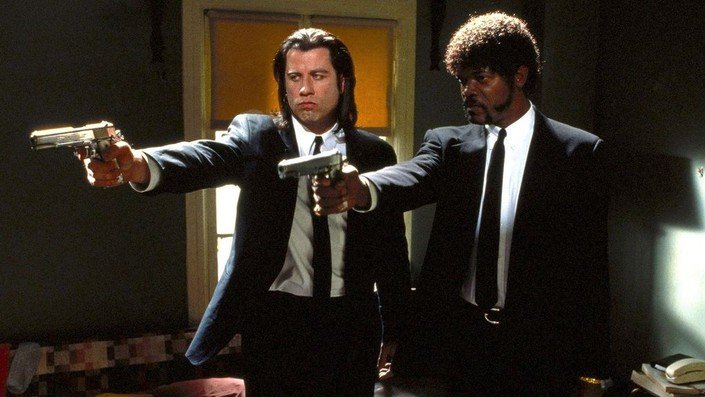
In the HBO series “Euphoria,” the world is crumbling, and its young protagonists are just trying to survive the chaos of adolescence. Created by Sam Levinson, the show takes us on a harrowing journey through the lives of a group of high school students, each grappling with their own demons and desires.
At the heart of the story is Rue (played by the remarkable Zendaya), a 16-year-old girl struggling with opioid addiction. From the age of 13, Rue has been navigating the harsh realities of life, from the devastating loss of her father to the unforgiving nature of the world around her. As the series progresses, we witness her desperate attempts to stay clean, her all-consuming obsession with a new girl in town named Jules (Hunter Schafer), and the web of lies she weaves to keep her addiction hidden.
A Kaleidoscope of Teenage Experiences
While Rue’s story is the central focus, “Euphoria” is a tapestry of interconnected narratives, each one a unique and compelling exploration of the teenage experience. From the fluid sexuality of Jules to the body image struggles of Kat (Barbie Ferreira), the series delves into the complexities of growing up in a world that often feels like it’s on the brink of collapse.
One of the most striking aspects of “Euphoria” is its ability to capture the raw, unfiltered emotions of its characters. The show’s gritty, visceral style, coupled with its stunning cinematography, creates a sense of immersion that is both captivating and unsettling. The audience is drawn into the characters’ lives, experiencing their triumphs and tragedies as if they were our own.
Navigating the Chaos of Adolescence
What sets “Euphoria” apart is its unflinching exploration of the darker aspects of teenage life. The series doesn’t shy away from the harsh realities of addiction, mental health struggles, and the overwhelming pressures that young people face in a world that often seems indifferent to their plight.
Rue’s journey is a prime example of this. As she navigates the treacherous waters of recovery, the audience is confronted with the devastating consequences of her addiction. Her lies, her desperate attempts to maintain a facade of normalcy, and the toll it takes on her relationships all serve as a stark reminder of the immense challenges that young people can face.
A Masterful Blend of Storytelling and Visuals
One of the standout elements of “Euphoria” is its exceptional storytelling and visual style. The series is a masterclass in cinematic excellence, with a directorial approach that is both innovative and emotionally resonant.
The show’s creator, Sam Levinson, has crafted a narrative that is both deeply personal and universally relatable. The characters are richly developed, with each one serving as a window into the complex and often contradictory nature of the teenage experience.
The visual language of “Euphoria” is equally impressive. Cinematographer Marcell Rév’s work is a character in itself, with the use of bold colors, striking lighting, and innovative camerawork creating a dreamlike, almost surreal atmosphere. This visual style perfectly complements the show’s exploration of the emotional and psychological landscapes of its characters.
The Ensemble Cast Shines
At the heart of “Euphoria” is an ensemble cast that delivers performances of exceptional depth and nuance. Zendaya’s portrayal of Rue is a tour de force, capturing the character’s vulnerability, resilience, and the constant battle with her addiction.
Alongside Zendaya, the supporting cast is equally impressive. Hunter Schafer’s Jules is a captivating and complex character, whose journey of self-discovery and exploration of her sexuality is both poignant and empowering. Barbie Ferreira’s Kat, with her struggles with body image and newfound confidence, is a relatable and multifaceted character that resonates with viewers.
The ensemble is rounded out by standout performances from Jacob Elordi as the brooding and troubled Nate, Maude Apatow as the anxious and insecure Lexi, and Angus Cloud as the enigmatic Fezco, who serves as a mentor and confidant to Rue.
Exploring the Themes of Addiction and Trauma
At its core, “Euphoria” is a powerful exploration of the themes of addiction and trauma. Rue’s journey is a harrowing depiction of the grip that opioids can have on a young life, and the show doesn’t shy away from the devastating consequences of her addiction.
But the series also delves deeper, examining the underlying causes of Rue’s addiction and the ways in which trauma can shape the lives of young people. The loss of her father, the emotional turmoil of her family, and the overwhelming pressures of adolescence all contribute to Rue’s descent into addiction, and the show masterfully weaves these elements together to create a complex and nuanced portrait of a troubled youth.
The Importance of Representation
One of the standout aspects of “Euphoria” is its commitment to diverse and inclusive representation. The series features a range of characters from different backgrounds, sexual orientations, and gender identities, all of whom are given the opportunity to tell their stories with authenticity and depth.
The character of Jules, for example, is a transgender woman whose journey of self-discovery and exploration of her sexuality is a powerful and important narrative. Similarly, the show’s portrayal of Kat’s body image struggles and her eventual embrace of her own sexuality is a refreshing and empowering representation of a young woman’s journey of self-acceptance.
By giving voice to these diverse experiences, “Euphoria” not only reflects the rich tapestry of the teenage experience but also serves as a powerful statement about the importance of representation in media. The show’s commitment to inclusivity and authenticity is a testament to its creators’ vision and a testament to the transformative power of storytelling.
The Lasting Impact of “Euphoria”
As the series continues to captivate audiences, it’s clear that “Euphoria” has left an indelible mark on the landscape of television. The show’s unflinching exploration of the challenges facing young people, its exceptional storytelling and visual style, and its commitment to diverse representation have all contributed to its critical acclaim and cultural impact.
But beyond the accolades, “Euphoria” has also sparked important conversations about the realities of addiction, mental health, and the complex experiences of growing up in a world that often feels like it’s on the brink of collapse. By shining a light on these issues, the series has the potential to inspire empathy, understanding, and, ultimately, change.
As we eagerly await the next chapter in the lives of Rue, Jules, and the rest of the “Euphoria” ensemble, one thing is certain: this series will continue to resonate with audiences, leaving a lasting impact on the way we think about the teenage experience and the power of storytelling to transform our understanding of the world around us.
Conclusion
In the end, “Euphoria” is a masterful and unforgettable exploration of the human experience, a series that dares to confront the darkest corners of adolescence with honesty, empathy, and a relentless commitment to artistic excellence. It is a show that will linger in the minds of its viewers long after the credits have rolled, a testament to the transformative power of storytelling and the enduring resilience of the human spirit.





